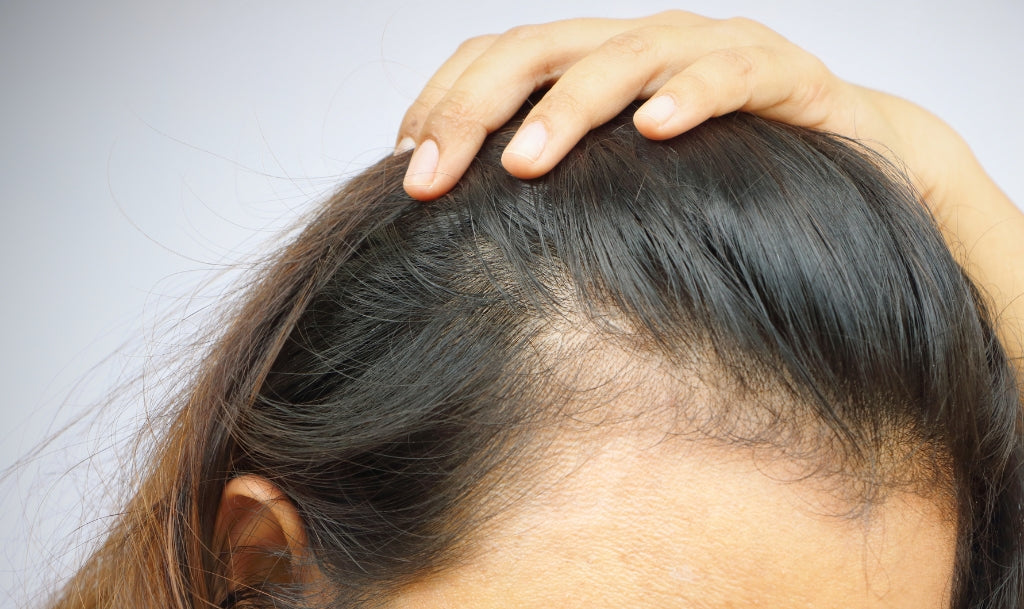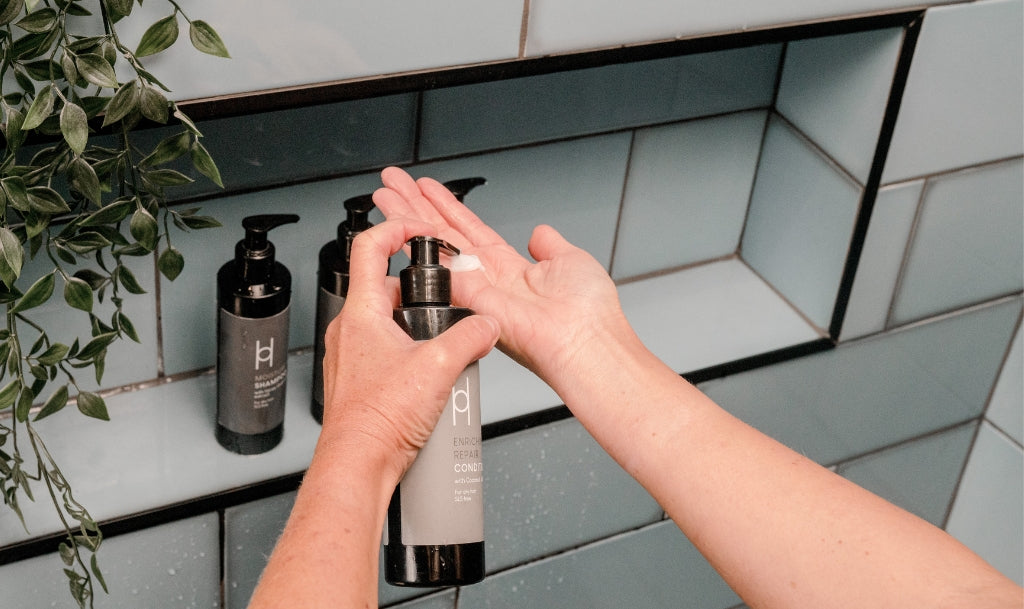For many women, ageing can bring unwelcome changes to their hair. Whether it's thinning, graying, or a change in texture, finding the right way to deal with your hair can be difficult.
But before you try all sorts of things on your hair to fix it, it's important to understand what's going on. In this blog post, we'll take a look at three major ways your hair changes as you age and how to best treat them.
Hair Is Prone To Breakage As You Age Because Your Hair Has A Shorter Lifecycle.
Before menopause, a woman's hair is typically soft, shiny and easy to style. But during menopause, many women find that their hair becomes drier, more difficult to control and a little lacklustre.
In addition, menopause can also trigger changes in hair texture, resulting in brittle hair that's prone to breakage!
The reason for this is that as you age, your hair has a shorter life cycle. This causes hair to fall out more frequently and it's replaced with finer hair. Even the simple act of brushing your hair can turn into a battle, as strands insist on breaking off at the slightest tug!
To mitigate this, here are some things you can do to protect and strengthen you hair:
- As menopause can cause your hair to become more prone to breakage, be sure to take extra care when styling and brushing it. Try using a soft brush and don't tug on your hair while brushing, especially when your hair is wet!
- Use a shampoo that supports hair growth such as Moisture Rich Shampoo. This deluxe shampoo is made with Honeyquat (a natural ingredient made from pure honey) which draws moisture into the hair and scalp.
It is also blended with oat straw which is an intensely nourishing ingredient that's packed with vitamins and minerals to promote hair growth!
With the right tools and tactics, you can make thin, limp and dull hair a thing of the past and enjoy thicker and fuller hair again!

Is Your Scalp Feeling Dry And Itchy? Low Collagen & Estrogen Could Be The Cause.
For many women, menopause brings changes to their hair, including a drier scalp and less oil production.
Before we look at remedies, it's important to understand why this occurs first.
- The drop in estrogen levels during menopause can cause the sebaceous glands (which produce oil) to become less active. Furthermore, these oil glands diminish in size and the skin becomes wrinkled and itchy.
- Collagen production also decreases at a faster rate as you age. As collagen is an anti-ageing protein that strengthens the scalp and supports healthy hair, a reduction in collagen can cause a dry, flaky scalp.
- All of these factors contribute to dry, dull and even brittle hair.
So, what can you do about it?
Use a conditioner such as Enriching Repair Conditioner that keeps your scalp and hair hydrated and prevents hair breakage.
Infused with marula and coconut oil, this conditioner hydrates your hair from root to tip, giving it a gorgeous glossy shine! These oils also nourish the scalp and support hair growth. Marula oil in particular is rich in antioxidants which strengthen hair and reduce frizz.
Harrogate Organics haircare products are also sulfate free meaning that they don't strip your natural oils. This means that your hair retains its natural shine and soft texture.
The Reason Your Hair Loses Volume And Length? Hormonal Changes!
A change that often occurs to our hair as we age is a decrease in hair volume and length. There are a few reasons why this happens.
- First, estrogen and progesterone levels drop during menopause, making hair grow slower and thinner.
- The decrease in these hormones causes an increase in the production of male hormones called androgens. Androgens shrink hair follicles, resulting in hair loss on the head.
Both of these factors can contribute to hair that lacks volume and looks shorter than it did before menopause. Luckily, there are a few things women can do to combat thinning hair.
Eating plenty of protein, iron, zinc, and biotin-rich foods helps to promote healthy hair growth. Leafy greens, eggs, nuts and beans are all great options for this.
With a little effort, you can keep your hair looking full and lustrous during and after menopause.
 Bring Life Back To Your Hair In A Few Simple Steps.
Bring Life Back To Your Hair In A Few Simple Steps.
If you’re feeling like your hair is looking a little lacklustre lately, don’t worry – it doesn’t mean that your healthy hair days are behind you.
With the right diet and haircare, you can bring back sheen, softness and health to your locks.
And we want to help make that happen – so for a limited time only, get 20% off our Moisture-Rich Shampoo & Enriching Repair Conditioner bundle when you use the code HAIR20 at checkout.




